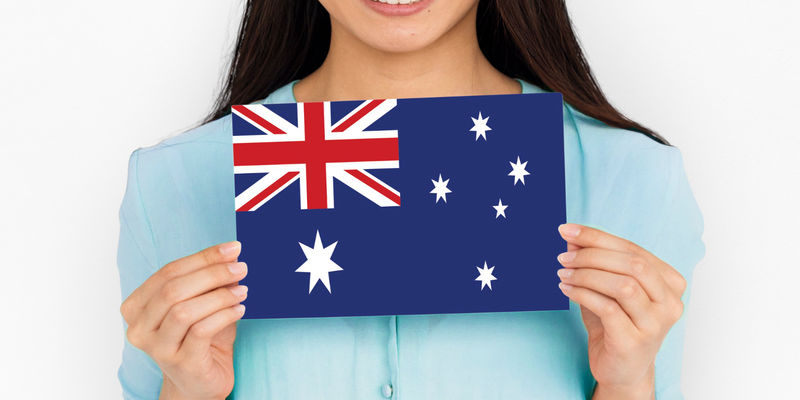Are you excited to experience a different academic journey and discover life on a new continent? If so, studying in Australia should be on your radar! Studying abroad not only enhances personal growth but also sharpens your interpersonal skills. Australia offers a unique opportunity to explore some of the most diverse landscapes and climates, from mountains and ski resorts to stunning beaches, deserts, and tropical rainforests.
With a history spanning approximately 65,000 years, Australia was originally inhabited by Indigenous Australians before Dutch and British colonization in the 17th century. Despite being the smallest continent, Australia is one of the largest countries globally, ranking 6th in total area. It comprises the mainland, Tasmania, and several smaller islands. With thousands of courses available, this guide will assist you every step of the way.
Why Study in Australia?
Top-Ranked Universities: Australia is home to prestigious universities that consistently rank among the world’s best. Institutions such as the University of Melbourne, Australian National University, and the University of Sydney offer diverse programs, ensuring a high-quality education.
Globally Recognized Degrees: Australian qualifications are highly esteemed worldwide, providing graduates with a competitive edge in global career opportunities and further academic pursuits.
Quality Assurance and Accreditation: Australia’s education system is renowned for its high standards, maintained through a rigorous quality assurance framework. The Tertiary Education Quality and Standards Agency (TEQSA) ensures that educational institutions meet stringent quality and accreditation standards.
Multicultural Society: Australia’s inclusive and multicultural environment is welcoming to international students, allowing for interactions with diverse cultures, which enhances global understanding and enriches the overall experience.
Employment Prospects: Australia’s strong job market offers ample opportunities for international students to gain practical experience and launch their careers. The government also provides post-study work visas, allowing graduates to work in the country after completing their studies.
Breathtaking Scenery: Australia’s natural beauty is nothing short of spectacular. Students can explore world-famous landmarks such as the Great Barrier Reef, Uluru, and the Sydney Opera House while immersing themselves in the country’s unique and diverse landscapes.

Some of Our Top University Picks:
- Curtin University
- Deakin University
- Engineering Institute of Technology, Perth
- Le Cordon Bleu Australia
- La Trobe University
- Royal Melbourne Institute of Technology
- University of New South Wales
- University of Queensland
- University of Sydney
Admission Requirements to Study in Australia
International students must meet specific academic and language proficiency requirements to be eligible for admission to Australian universities:
- Diploma-Level Courses: Applicants need a minimum of 60% in their 12th-grade exams.
- Bachelor's Degree: A minimum of 65% in class XII is required.
- Master's Degree: Australian universities typically accept a 3-year undergraduate degree for entry into most postgraduate programs. An Indian bachelor’s degree (e.g., B.A., B.Com, B.Sc.) is considered equivalent to an Australian Bachelor (Ordinary) Degree. However, some programs may require a qualification equivalent to an Australian Bachelor (Honours) Degree, which includes an honors degree or 16 years of formal education (e.g., a 4-year degree like B.E., B.Tech).
- Graduate Programs: A minimum of 65% in the bachelor’s degree is generally required, although this may vary by program and university.
- College Admission Requirements
- International students must provide comprehensive educational details, including subjects studied and grades achieved.
Required documents include:
- Standard X and XII Mark Sheets
- Bachelor’s Degree/Provisional Certificate with Mark Sheets
Note: If documents are not in English, they must be translated and certified.
Application Process
To apply, you can obtain application forms via:
- Email: Request from the university’s website.
- University Websites: Download and print the application forms.
- University Representatives: Obtain forms from authorized representatives in your country.
When applying to Australian universities, students must submit:
- Academic Transcripts: Secondary and higher secondary certificates with transcripts.
- English Language Proficiency Scores: IELTS is the most common, and for MBA programs, GMAT scores may be required.
- Work Experience: If applicable, provide certificates or letters detailing work experience, along with a CV.
- Statement of Purpose: Outline your career goals, interests, and reasons for choosing your field of study.
- Letters of Recommendation: Two letters from teachers or professional contacts are recommended.
- Admission Tests
- English Proficiency: IELTS is required for non-native English speakers.
- GMAT: Required for some MBA programs.
Post-Application Process
After submitting your application, it typically takes a week to receive a response. During this time, prepare for your visa application and arrange finances for tuition and living expenses. Once you receive an Electronic Confirmation of Enrollment (eCoE), you can proceed with your visa application.
Application Timeline
Key Deadlines: Applications for February intake generally close in November of the previous year, while July intake applications close around April or May.
Academic Intakes: Most universities offer two main intakes—Semester 1 in February and Semester 2 in July. Some institutions also offer a trimester system with additional intakes.

Tuition Fees and Living Costs in Australia
Australia has both public and private universities with varying fee structures. Here’s an overview:
Public Universities: Tuition fees range from $20,290 to $73,204 depending on the university and program.
Private Universities: Tuition fees range from $20,000 to $64,872.
Living Costs: On average, international students should budget around $35,000 annually for living expenses, including accommodation, food, transportation, and other costs.
- Accommodation: $297-$743 per week
- Food and Groceries: $208-$416 per week
- Transportation: $44-$89 per week
Weekly Accommodation Costs (according to the Australian Government):
- Hostels and Guesthouses: $90 to $150
- Shared Rental: $95 to $215
- On-Campus: $110 to $280
- Homestay: $235 to $325
- Rental: $185 to $440
Australia Scholarships
Australia is widely recognized as one of the most diverse and welcoming countries in the world. Its universities, colleges, and schools are dedicated to providing practical skills and knowledge to help you excel in your chosen field. International students have excellent opportunities to study at top Australian universities through scholarships.
The top five Australian scholarships are fully funded, covering all expenses for selected students. If you're aiming to study at some of the best institutions globally, these scholarships are worth considering. Here are the top five fully-funded scholarships for international students in Australia:
Australia Awards Scholarships
The Australia Awards Scholarships are among the world’s most prestigious scholarship programs, managed by the Department of Foreign Affairs and Trade. These scholarships aim to support the development needs of Australia’s partner countries through bilateral and regional agreements. The Australian Government covers full tuition fees, return airfare, establishment allowance, and a Contribution to Living Expenses (CLE), making it one of the most competitive and sought-after scholarships globally.
Flinders University Scholarship
The Flinders University Scholarship is a fully-funded program sponsored by the Australian Government, open to international students pursuing master’s and Ph.D. degrees. The Australian Government Research Training Program Scholarships (AGRTPS) provide an international tuition fee offset, a living stipend, and Overseas Health Care coverage. This scholarship supports international students in undertaking higher degrees by research at Flinders University.
Graduate Research Scholarships
The University of Melbourne offers Graduate Research Scholarships to outstanding students pursuing graduate research. With 600 Research Masters/MPhil and Ph.D. scholarships available across various disciplines, this program is open to both domestic and international students. The University of Melbourne, Australia’s top-ranked institution according to THE rankings, offers one of the best opportunities for research-based education.
Australian Government Research Training Program Scholarships
The University of Sydney offers the Australian Government Research Training Program Scholarships, open year-round to both domestic and international students. These scholarships support students pursuing a Doctor of Philosophy (Ph.D.) or Masters by Research/Master of Philosophy (MPhil). While applications are accepted year-round, submitting your HDR admission by October is recommended to receive an outcome by February.
The University of Adelaide Scholarships
The University of Adelaide provides Adelaide Scholarships International to exceptional international graduates from any country, enabling them to pursue a Masters or Doctorate degree by research. Available across all disciplines, these scholarships are highly competitive. Established in 1874, the University of Adelaide is one of Australia’s oldest and most prestigious public universities.

Australia Student Visa Process
To study in Australia, apply for the appropriate student visa subclass based on the duration of your program. The primary visa for higher education is the Student Visa Subclass 500. Ensure that you meet all visa requirements, including enrollment in a registered course and adequate health insurance.
Genuine Temporary Entrant (GTE) Requirement: You must demonstrate your genuine intent to study in Australia temporarily. This involves submitting supporting documents such as academic transcripts, a letter of offer, proof of financial capacity, and a statement of purpose outlining your study plans and future goals.
Financial and Health Insurance Requirements: You must provide evidence of sufficient funds to cover tuition fees, living expenses, and return travel. Additionally, international students are required to obtain Overseas Student Health Cover (OSHC) for the duration of their student visa. OSHC provides access to medical services, hospital care, and limited pharmaceuticals.
Extending Visas and Post-Study Work Options
If you wish to extend your stay in Australia after completing your studies, explore the available post-study work options and visa pathways. Australia offers various opportunities for skilled graduates to gain work experience, with the potential to eventually secure permanent residency.
Conclusion
Studying in Australia offers a wealth of opportunities for international students, from world-class education to a vibrant, multicultural experience. Throughout this guide, we've aimed to cover everything you need to know to start your academic journey in Australia, including the application process, visa requirements, accommodation options, and tips for adjusting to life in a new country.
We hope this guide has provided you with valuable insights and practical advice to help you make informed decisions. However, if you have any further questions or need personalized assistance, don’t hesitate to reach out to us. At ApplyMoon, we’re here to support you every step of the way. For more information, feel free to contact us. Your Australian adventure awaits!
